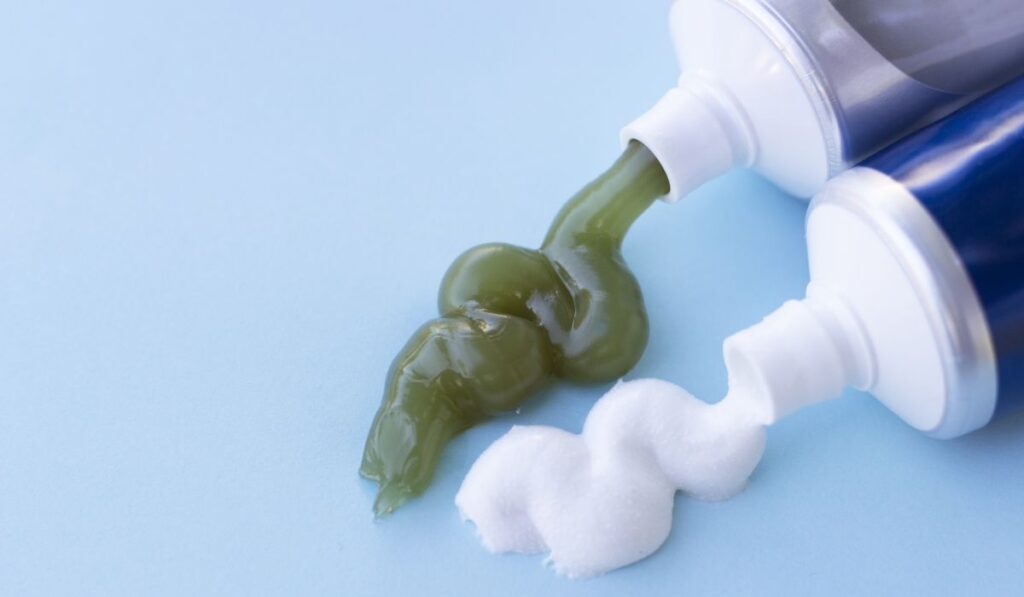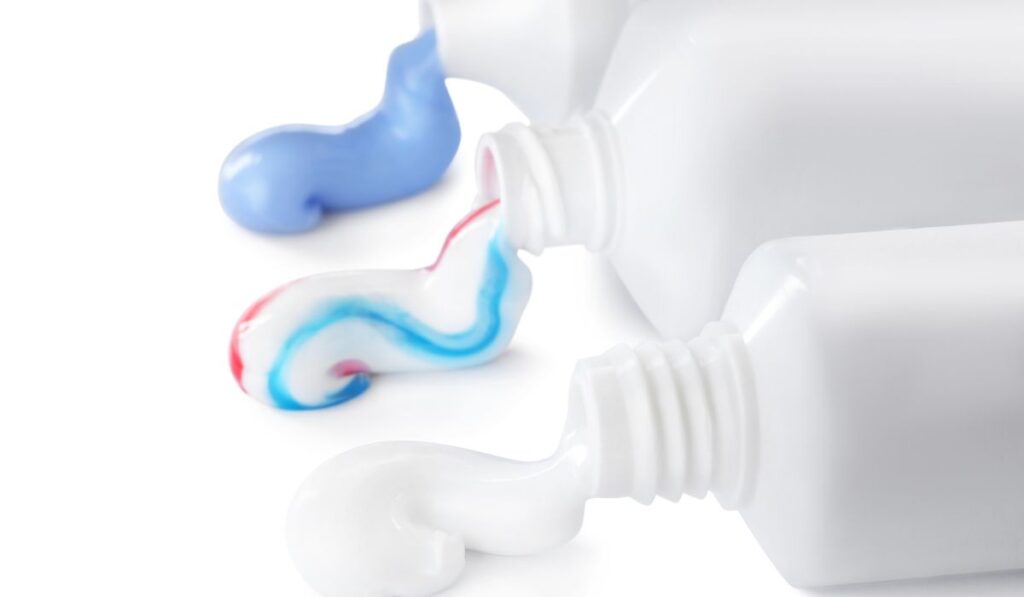There are many toothpaste options in the market these days, with some boasting incredible whitening power. Others claim to offer unmatched cavity protection, especially those branded “natural” or “organic.” But what is organic toothpaste, and is it better than traditional toothpaste?
While organic toothpaste may contain natural ingredients with good health benefits, experts say it’s not better than traditional toothpaste. Most organic toothpastes don’t have fluoride. Without fluoride, these toothpastes aren’t effective for preventing tooth cavities.
The idea that organic toothpaste is better than conventional toothpaste probably stems from the belief that organic products are generally healthier and more effective. However, there’s always been debate about the truthfulness of this. Let’s get started so you can get the complete insight into this.
What’s the Difference?

The difference between organic and traditional toothpaste is that organic toothpaste is made from all-natural ingredients, without added chemicals and artificial flavorings.
Traditional
Traditional toothpaste like that from Colgate or Crest (on Amazon) contain at least the following three ingredients:
- Fluoride (sodium fluoride) to fight cavities
- Sodium Lauryl Sulfate (SLS) to make the toothpaste foam
- Saccharin (an artificial sweetener) to numb the unpleasant taste
Of course, these kinds of toothpastes also contain preservatives, various coloring agents, and artificial flavorings.
While the ingredients in traditional toothpaste aren’t necessarily toxic, some compounds like sodium lauryl sulfate may cause gum and mouth irritation for some people. In addition, SLS will lead to more irritation if you have sores in the mouth or suffer stomatitis.
Organic
On the other hand, organic toothpaste like Burt’s Bees Toothpaste (on Amazon) is made from natural ingredients people believe are essential for good oral health. They matter for those considering the upside of using organic toothpaste, and they include the following:
- Aloe vera: Aloe vera is a potent natural ingredient in natural toothpaste and cosmetics. It has numerous oral health benefits and is known to be antiseptic and anti-inflammatory. This makes it suitable for preventing gingivitis and periodontitis.
- Citrus and herbs: Citrus oils come from fruits like oranges and lemons. When used in toothpaste together with spices like fennel and anise, they reduce bad breath.
- Coconut oil: Studies show that coconut oil contains a chemical called lauric acid, which has proven antibacterial and anti-inflammatory effects. Toothpaste manufacturers include it in organic toothpaste to help reduce gingivitis.
- Xylitol: This is another crucial ingredient in organic toothpaste, and it’s believed to prevent cavities by killing the bacteria that cause them.
Should You Use Organic Toothpaste?
You should use organic toothpaste as long as it contains fluoride. Otherwise, stay away from brands that tout a fluoride-free label.
There are several natural or organic toothpastes in the stores, all with different claims. As it turns out, only a few reputable brands truly have natural ingredients. Some claim to be free from soy, gluten, fluoride, etc. Some claim to be completely eco-friendly or even vegan.
The most common feature of modern organic toothpastes is a fluoride-free label. This is something experts recommend you watch out for. Fluoride compounds like sodium fluoride have been proven safe and effective in small amounts.
Fluoride prevents your teeth from decaying or having cavities, keeping them strong. It only becomes harmful at high doses. Since fluoride toothpaste usually contains fluoride in controlled amounts, they’re safe to use, and dentists recommend them.
DIY Toothpaste Trends
There have also been online trends of DIY organic toothpastes in recent years. The DIY geeks who promote this trend claim you can make your own natural toothpaste with ingredients from your pantry.
Please note that brushing your teeth with a random mixture of ingredients from your kitchen is not entirely harmless.
Your teeth are so precious that you shouldn’t just brew a “natural” concoction with lemon, ginger, charcoal, baking soda, and whatnot. It could strip away your enamel, and the bad news is once it’s gone – it’s gone!
Why are Natural and Organic Toothpastes Becoming More Popular?
Natural and organic kinds of toothpaste are becoming more popular because consumers believe they’re healthier and better than non-organic products.
Experts believe health preferences and environmental concerns fuel the demand for natural and organic toothpaste. Nowadays, people are becoming mindful of their buying decisions because they want products that won’t take a toll on their health with too many chemicals.
Genuine organic toothpaste comprises natural products; sometimes, the tubings are made from biodegradable materials. People who prefer them over traditional toothpaste believe they’re playing their best part in conserving the environment while improving their health.
Is Organic Toothpaste as Effective as Traditional Toothpaste?

Organic toothpaste is less effective than traditional toothpaste if it doesn’t contain fluoride. While organic toothpastes aren’t necessarily harmful, most of them haven’t been proven to be any better than traditional brands.
Dental experts are concerned that people are rushing to organic kinds of toothpaste that claim to be “fluoride-free.”
Fluoride is an essential ingredient in toothpaste that helps fight cavities. While some people believe all toothpaste is the same, provided you clean your teeth effectively with a toothbrush, this is simply not true. So, any toothpaste that leaves it out exposes people to a greater risk of cavities.
However, the internet has an overwhelming collection of blog articles that claim fluoride-free toothpaste can also fight cavities. This information is often spread by natural toothpaste marketers and alternative medicine advocates.
Dental authorities have dismissed such claims and maintain their recognition of fluoride as a critical ingredient for preventing cavities. However, scientific literature shows that personal oral hygiene without fluorides doesn’t help reduce tooth cavities. This means any natural toothpaste without fluoride doesn’t help you against cavities.


